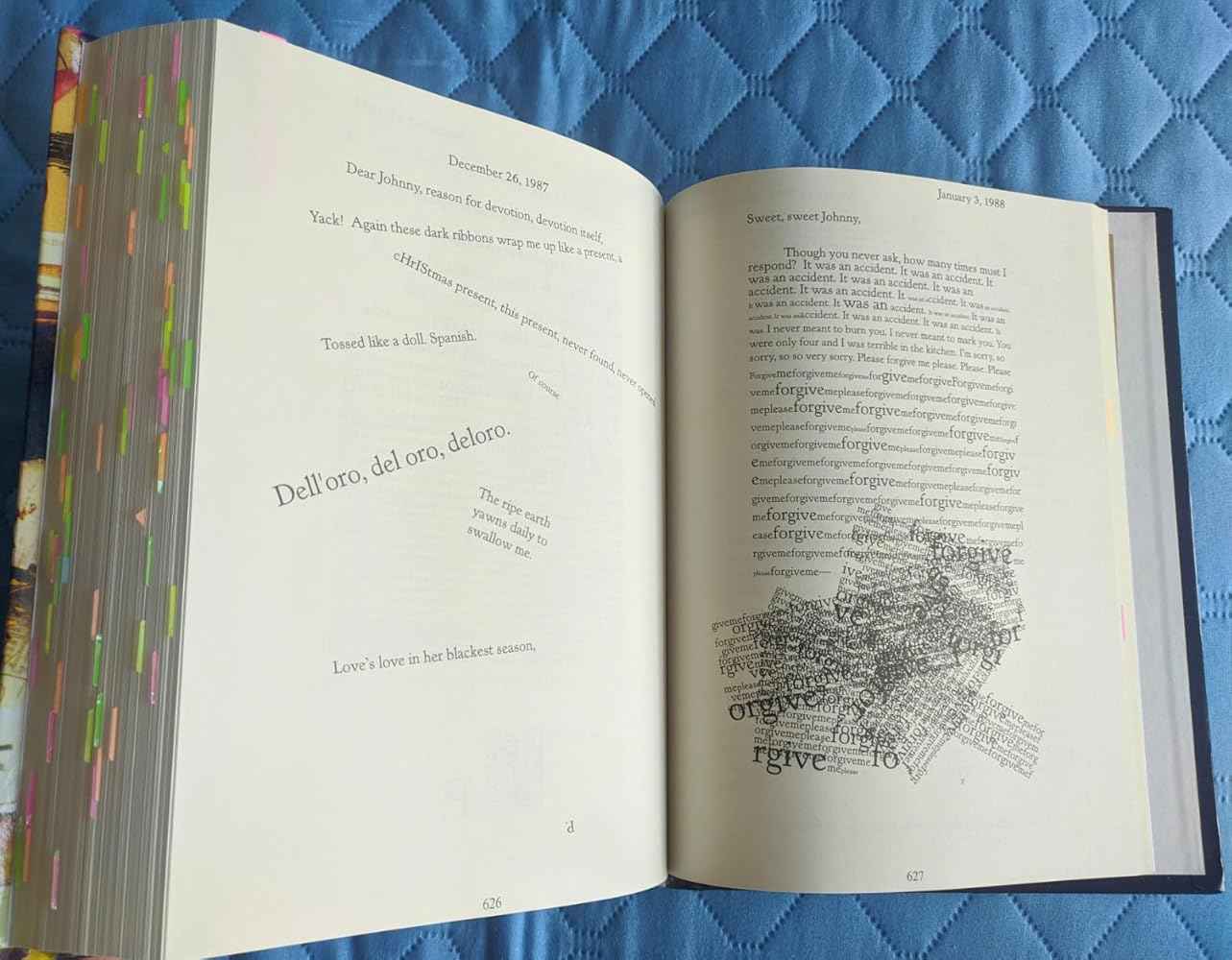
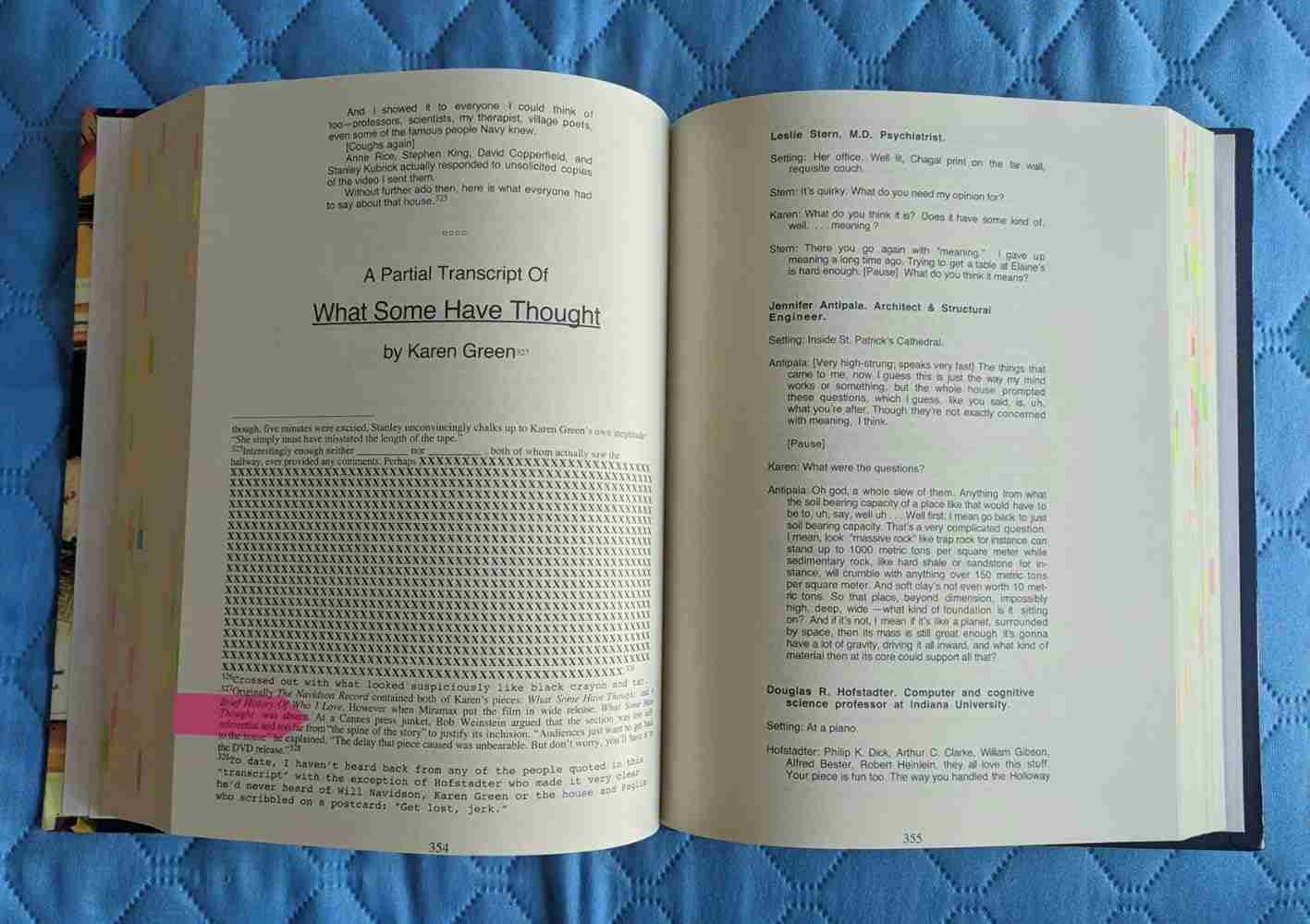
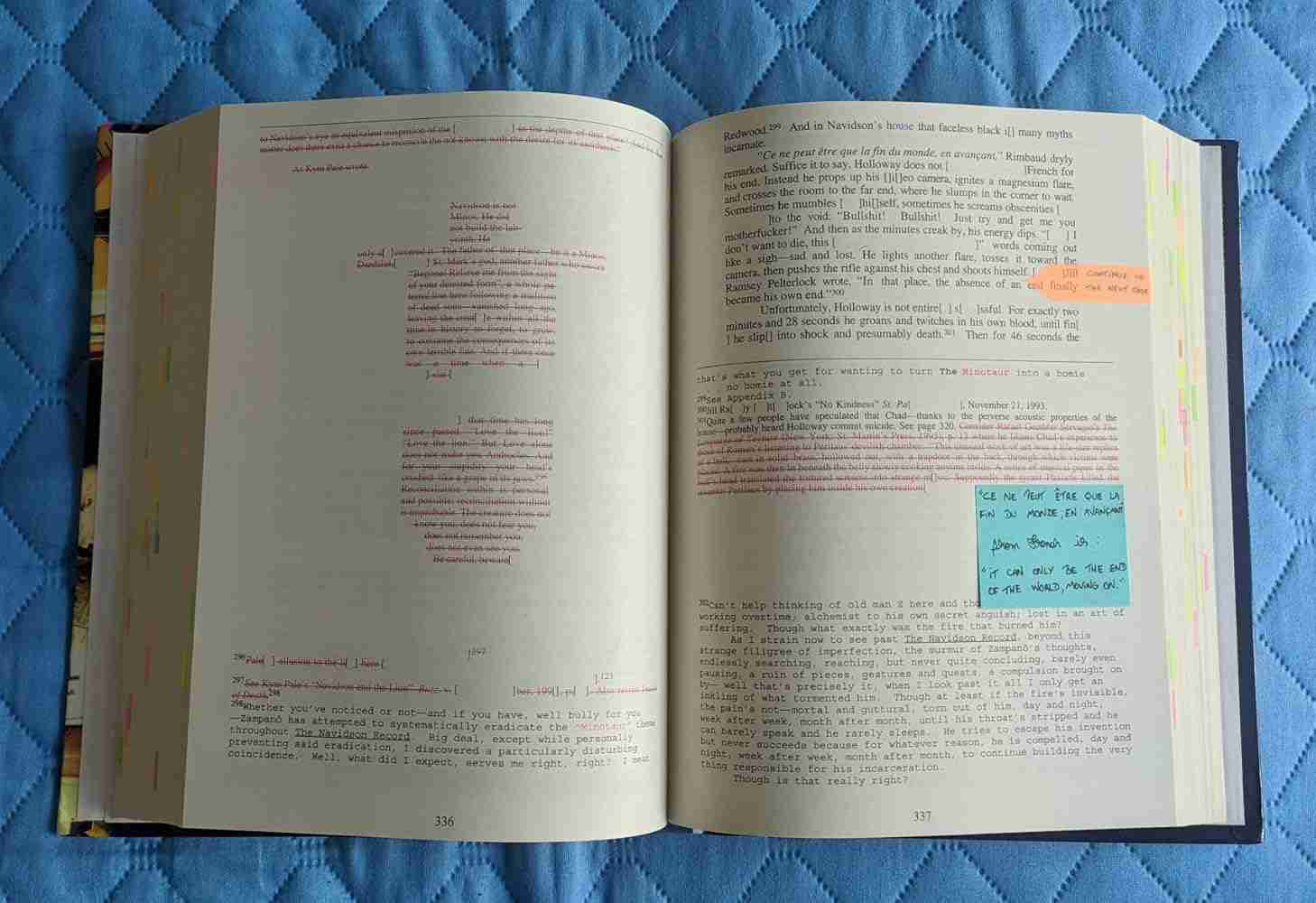
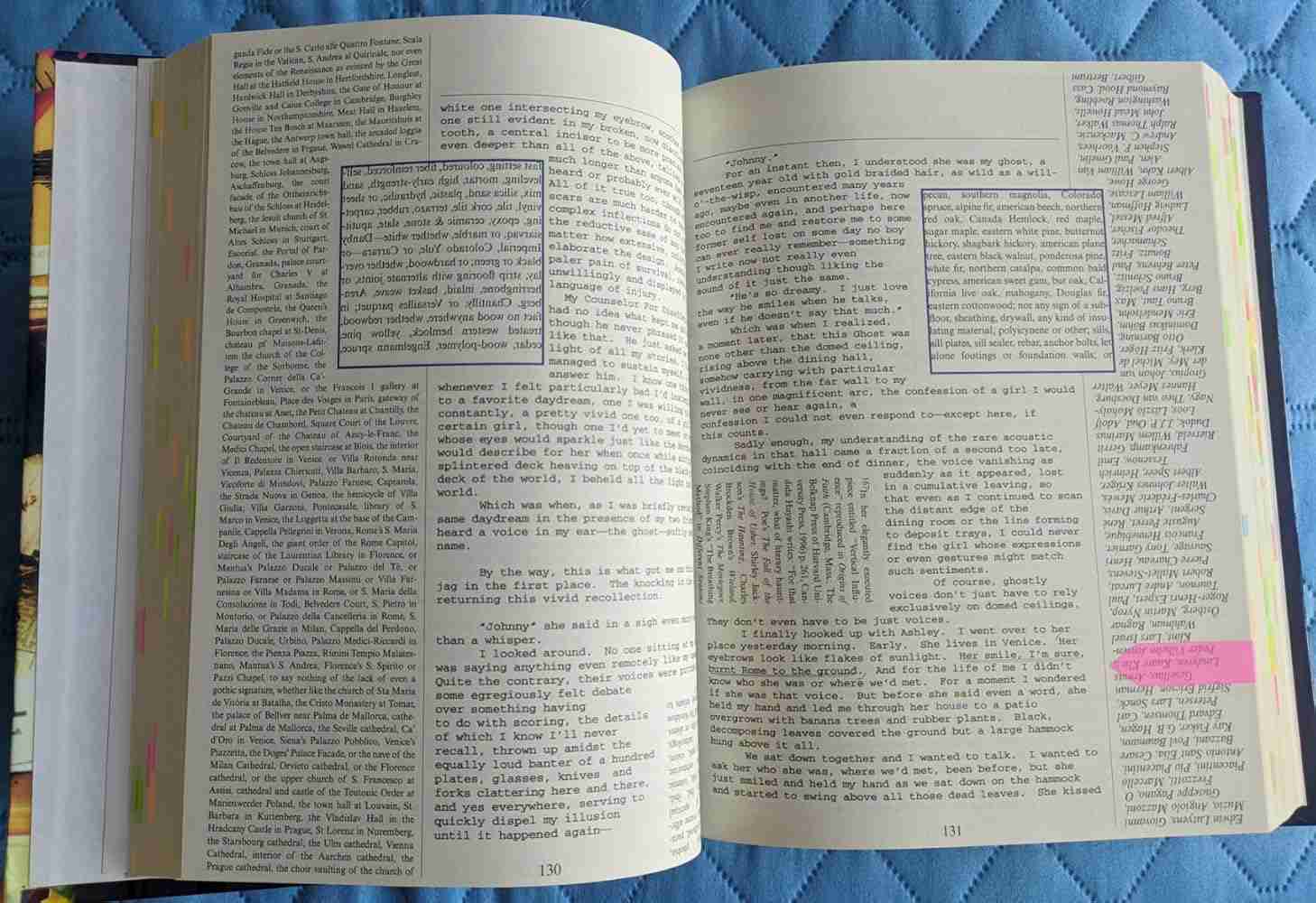
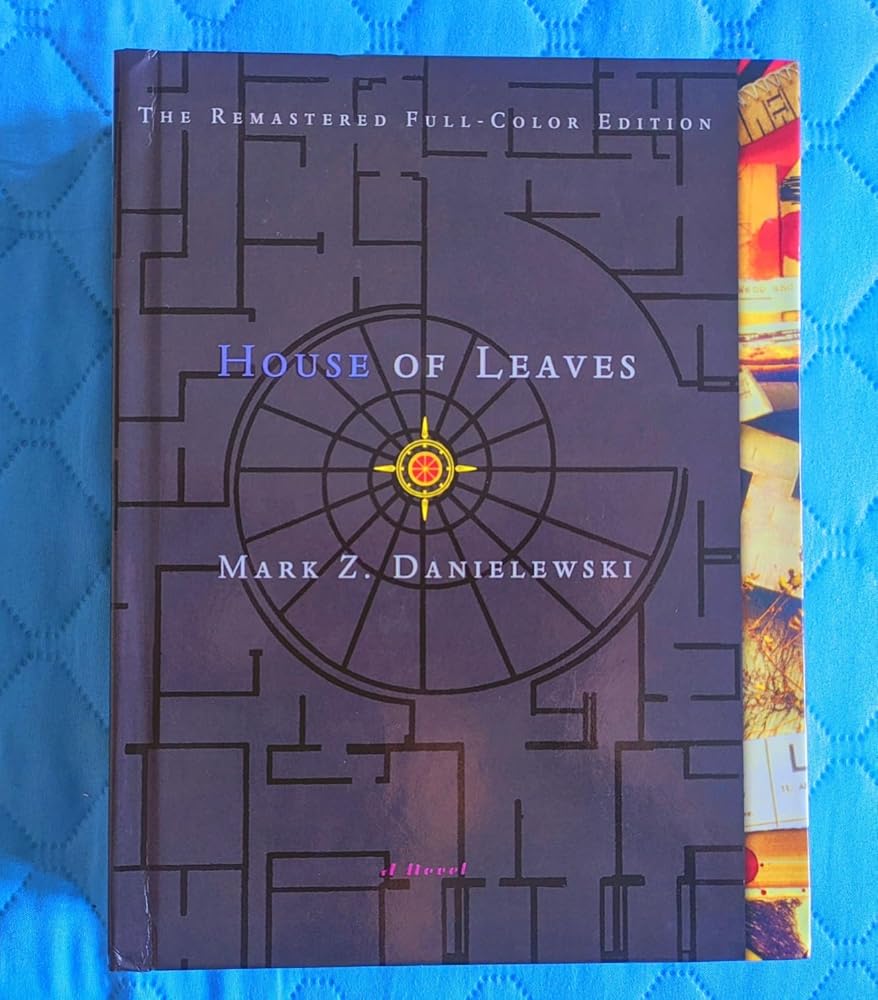
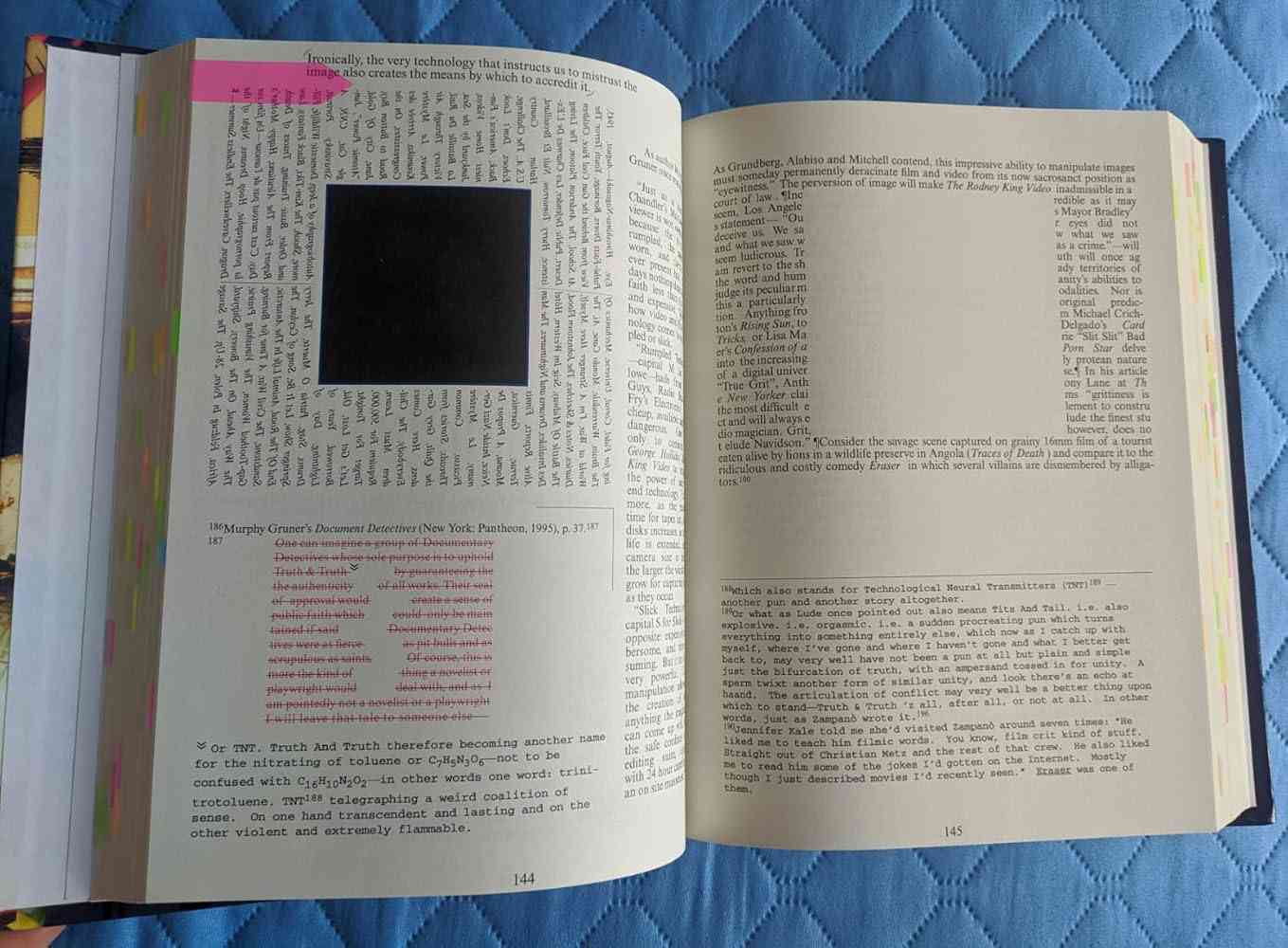
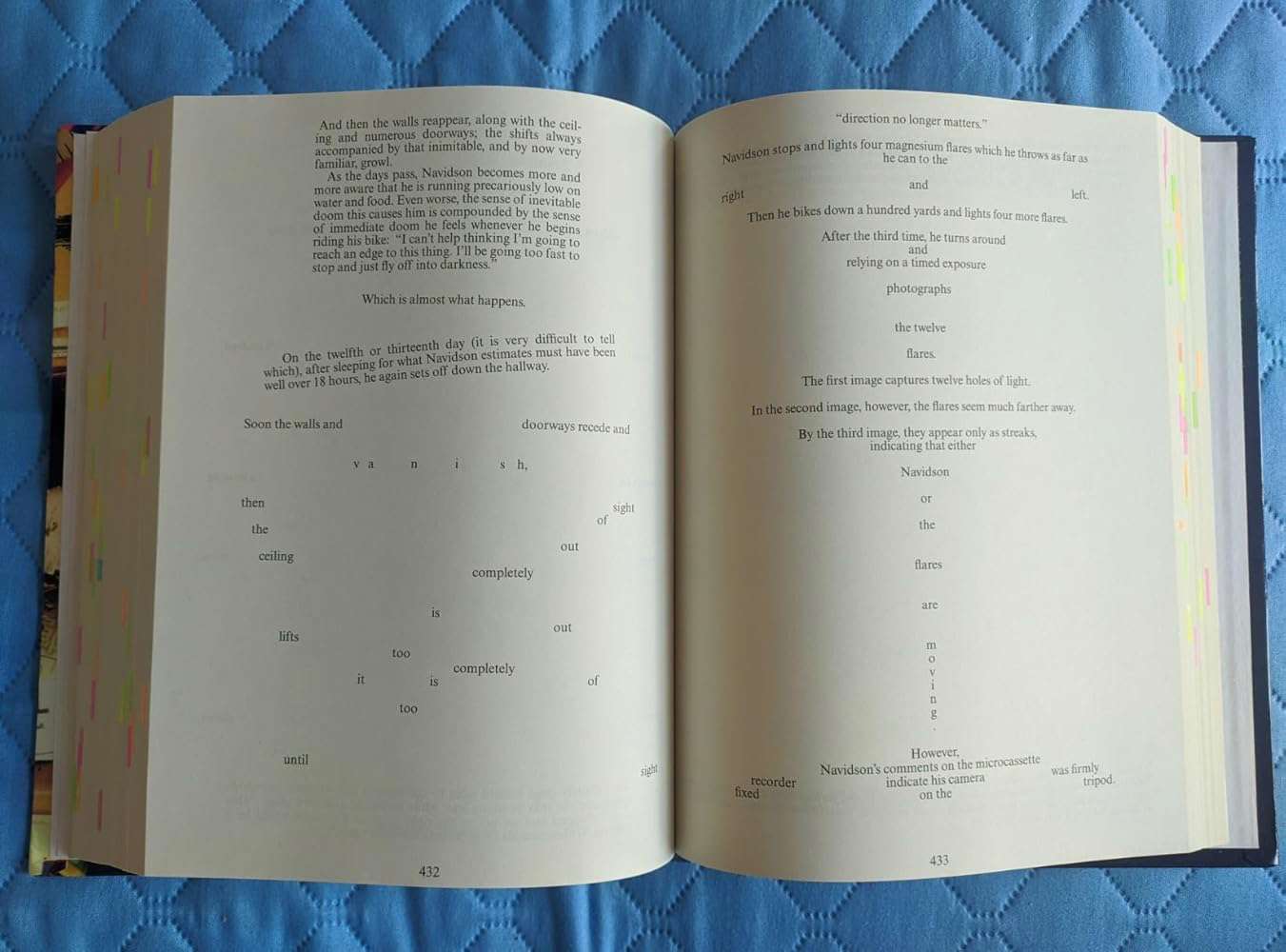
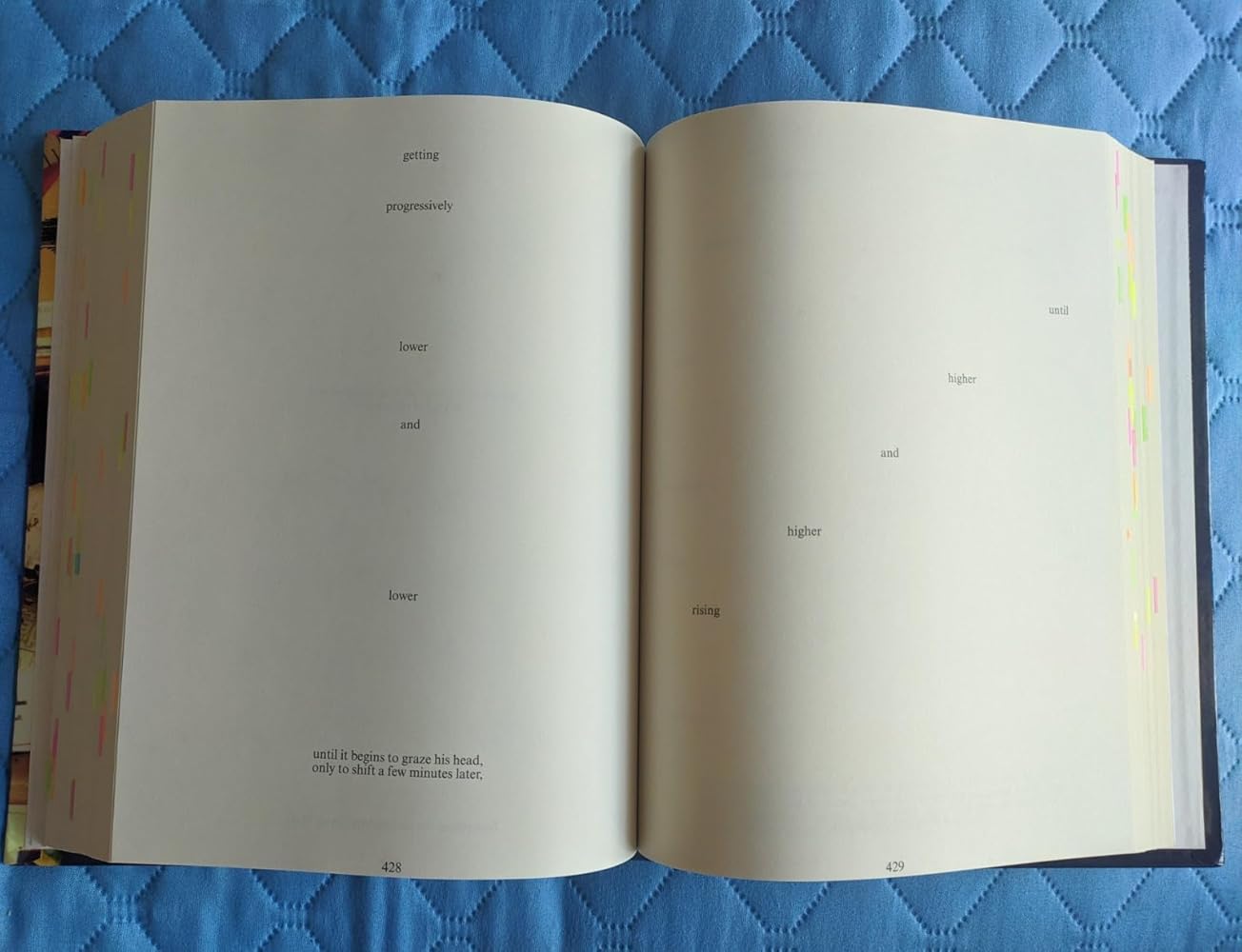
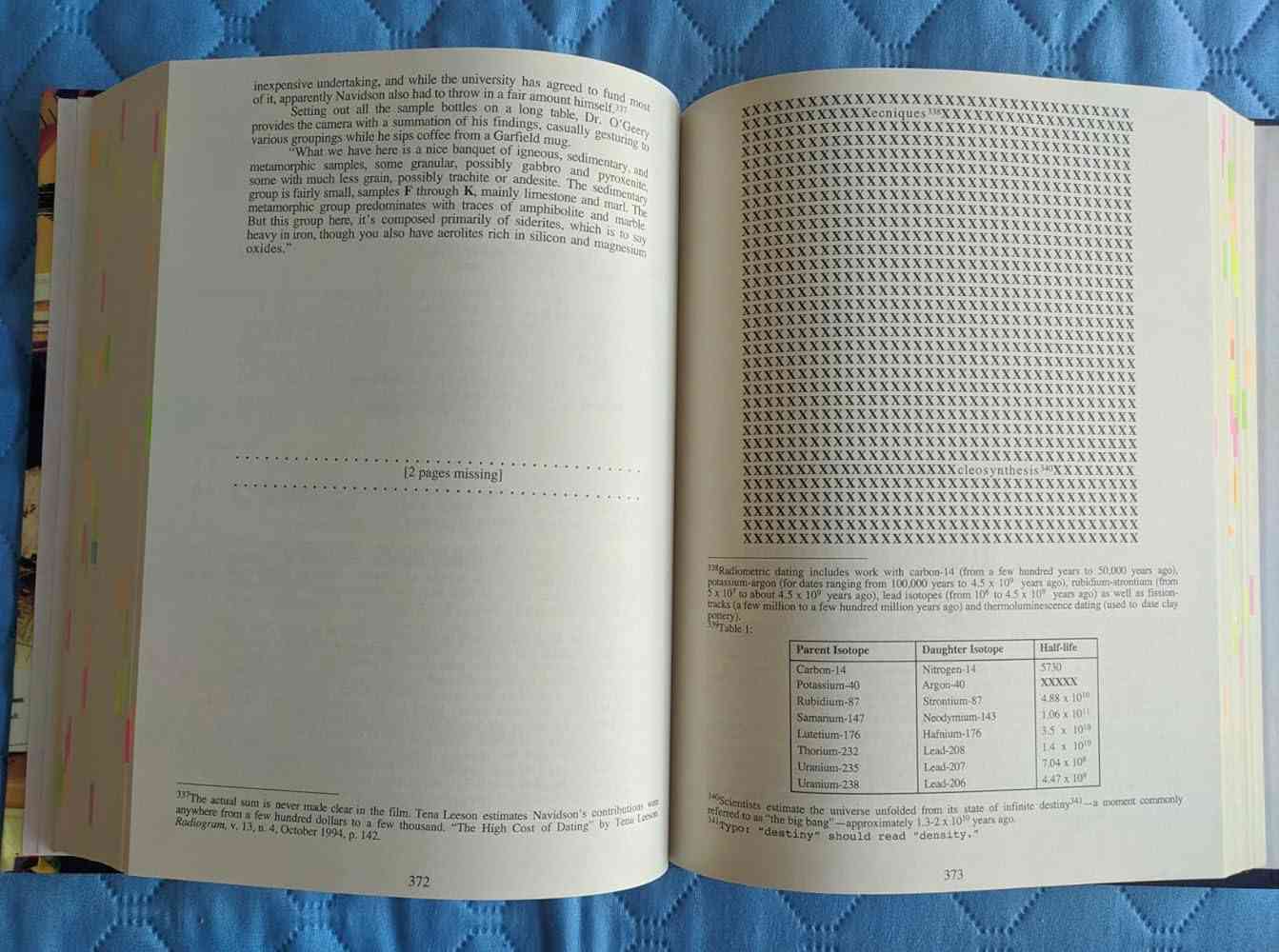
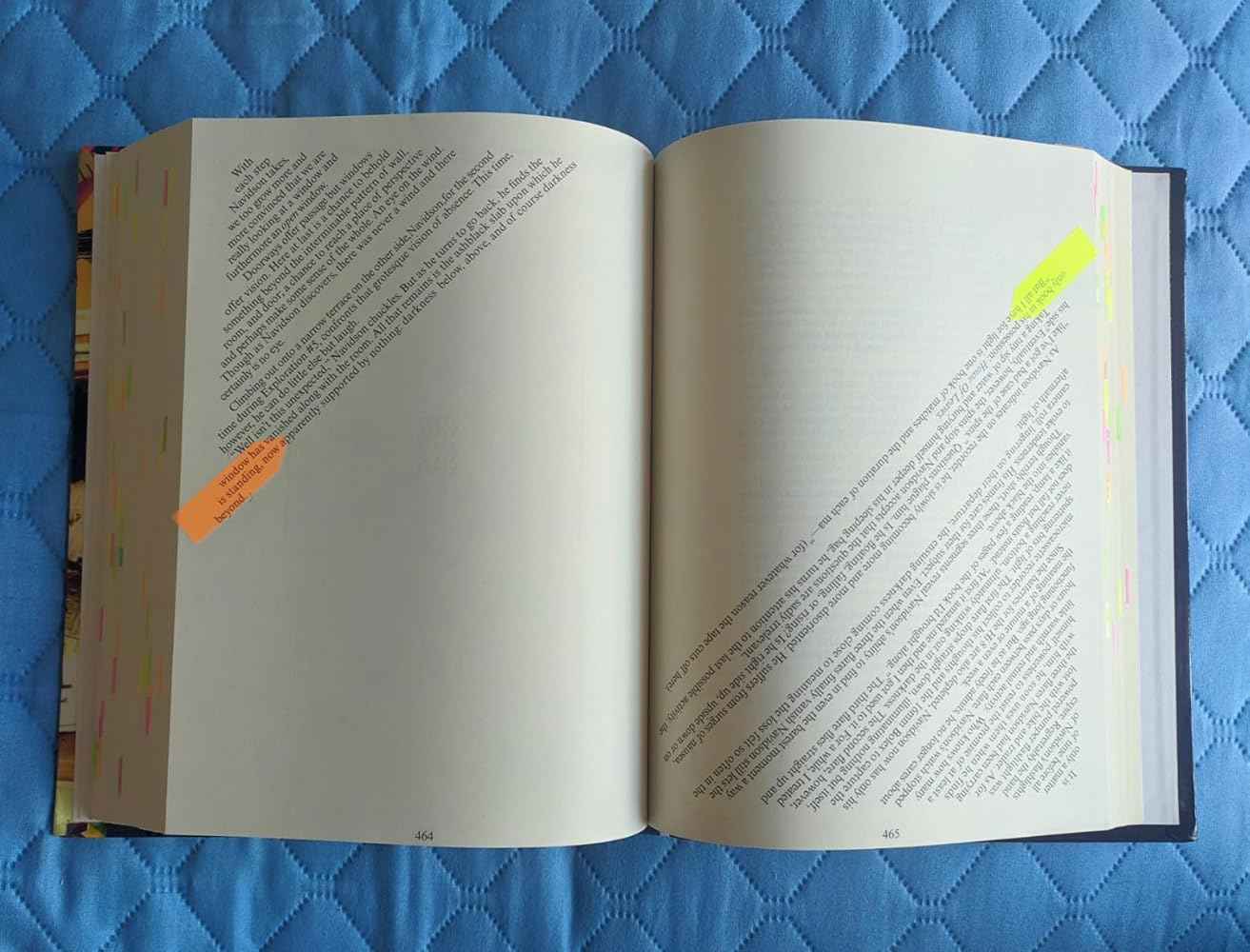
Reading House of Leaves felt like solving an intricate puzzle while walking through a haunted house. The way Danielewski plays with typography - spiraling text, mirrored pages, chaotic footnotes - physically mirrors the psychological unraveling happening in the story.
I found myself constantly flipping back pages, checking footnotes, and even grabbing a mirror from my bathroom to read certain sections. The experience was so immersive that I started seeing the world differently - suddenly my own hallway at home felt suspiciously long.
The three layered narratives create this delicious tension between academic analysis and pure madness. One moment you're reading dry scholarly commentary about a fictional documentary, the next you're plunged into Johnny Truant's drug-fueled paranoia. The transitions gave me literal chills.
What surprised me most was how emotional this experimental novel became. Beneath all the postmodern tricks lies a heartbreaking exploration of family trauma and the spaces between people - both physical and emotional. I found myself crying over architectural descriptions, which I never expected.
This isn't just reading - it's an experience that demands your full attention (I kept a notebook beside me at all times). But for those willing to dive in, it rewards with insights about storytelling, perception, and the very nature of reality that will haunt you long after turning the final page.

